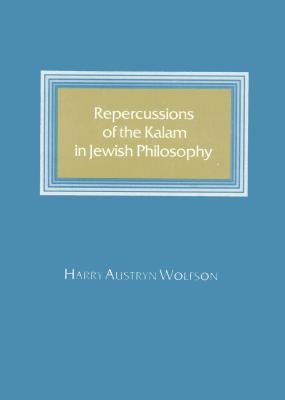
- We will send in 10–14 business days.
- Author: Harry Austryn Wolfson
- Publisher: Harvard University Press
- ISBN-10: 0674761758
- ISBN-13: 9780674761759
- Format: 16 x 22.1 x 2.5 cm, kieti viršeliai
- Language: English
- SAVE -10% with code: EXTRA
Repercussions of the Kalam in Jewish Philosophy (e-book) (used book) | bookbook.eu
Reviews
Description
In his monumental Philosophy of the Kalam the late Harry Wolfson--truly the most accomplished historian of philosophy in our century--examined the early medieval system of Islamic philosophy. He studies its repercussions in Jewish thought in this companion book--an indispensable work for all students of Jewish and Islamic traditions.
Wolfson believed that ideas are contagious, but that for beliefs to catch on from one tradition to another the recipients must be predisposed, susceptible. Thus he is concerned here not so much with the influence of Islamic ideas as with Jewish elaboration, adaptation, qualification, and criticism of them. To this end he examines passages reflecting Kalam views by a wide variety of Jewish thinkers, including Isaac Israeli, Judah Halevi, Abraham ibn Ezra, and Maimonides. As always in Wolfson's work, two aspects are apparent: the special dimensions of Jewish thought as well as its relation to other traditions. And as always his prose is both graceful and precise.EXTRA 10 % discount with code: EXTRA
The promotion ends in 22d.03:17:01
The discount code is valid when purchasing from 10 €. Discounts do not stack.
- Author: Harry Austryn Wolfson
- Publisher: Harvard University Press
- ISBN-10: 0674761758
- ISBN-13: 9780674761759
- Format: 16 x 22.1 x 2.5 cm, kieti viršeliai
- Language: English English
In his monumental Philosophy of the Kalam the late Harry Wolfson--truly the most accomplished historian of philosophy in our century--examined the early medieval system of Islamic philosophy. He studies its repercussions in Jewish thought in this companion book--an indispensable work for all students of Jewish and Islamic traditions.
Wolfson believed that ideas are contagious, but that for beliefs to catch on from one tradition to another the recipients must be predisposed, susceptible. Thus he is concerned here not so much with the influence of Islamic ideas as with Jewish elaboration, adaptation, qualification, and criticism of them. To this end he examines passages reflecting Kalam views by a wide variety of Jewish thinkers, including Isaac Israeli, Judah Halevi, Abraham ibn Ezra, and Maimonides. As always in Wolfson's work, two aspects are apparent: the special dimensions of Jewish thought as well as its relation to other traditions. And as always his prose is both graceful and precise.

Reviews